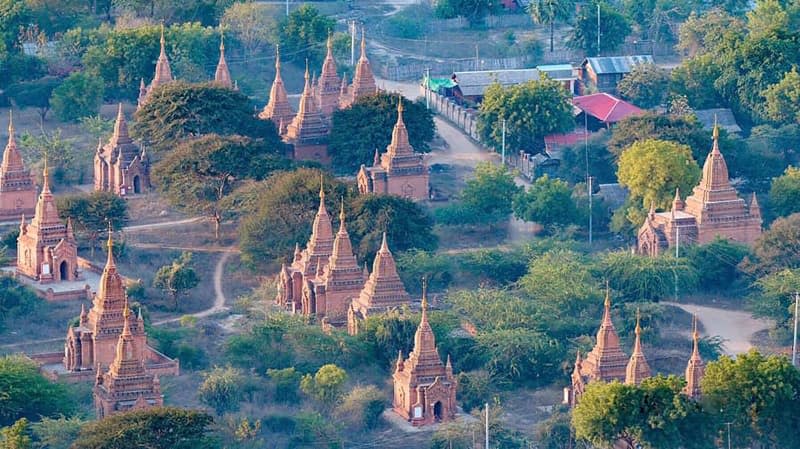Taboo travel: Myanmar tries tourism reboot 3 years after coup d'etat

Despite a brutal civil war, Myanmar’s holiday industry is trying to revive interest in the army-ruled country.
Hailing a "glowing sense of optimism and positivity within Myanmar’s tourism industry despite its current challenges," the Myanmar Tourism Federation is to stage an online promotion event in May with exhibiting companies from every sector of the travel industry.
Like most countries, tourism in Myanmar collapsed when Covid pandemic travel restrictions were imposed by governments all over the world. But in contrast to travel hub neighbours such as Thailand and Malaysia, Myanmar has not seen any revival since the pandemic was declared over and border curbs lifted.
A year after the pandemic started, the Tatmadaw, or Myanmar military, again seized control of the country, returning it to the pariah status seen during the previous 1962-2011 era of army control.
Those decades saw not only Western economic sanctions, but a taboo around visiting, as doing so entailed staying in hotels run by the army or associated businesses.
Any would-be visitor again faces the same ethical dilemma - assuming he or she is brave enough to go there in the middle of a civil war.
Over 2.3 million people have been driven from their homes since the 2021 army takeover, which has been met by fierce resistance by an array of militias. In its recently published global index, the Armed Conflict Location & Event Data Project (ACLED) listed Myanmar’s war "the most violent overall" and "the most fragmented."
Myanmar's tourism industry boomed for much of the decade leading up to 2021, when the country was for a time governed by an elected civilian administration led by the Nobel peace laureate Aung San Suu Kyi, who has since been imprisoned again by the military rulers.
During this period, international air traffic to Myanmar soared, while annual visitor numbers topped 4 million, more than 4 times as many as in 2023, when most entries were at the land borders with China and Thailand.
After five decades of army rule, the early part of the democratic interlude saw Myanmar hyped as the next "tiger" economic growth and investment destination in south-east Asia, including in big-brand clothing manufacturing.
However the latter years of the decade to 2021 saw the country's reputation tarnished by allegations of genocide by the army against the Rohingya, an ethnic minority living mostly in the west of the country.
More recently, the London-based Business and Human Rights Resource Centre recently revealed over 400 labour abuse allegations linked to the once-flourishing garment sector since the 2021 coup - a takeover it said was followed by "far-reaching restrictions on basic civil liberties."
"The workers affected by allegations recorded so far are employed at 209 factories producing or formerly producing for at least 122 named global fashion brands and retailers including Inditex, H&M Group, Primark & BESTSELLER," the BHHRC said in a January 31 report.

